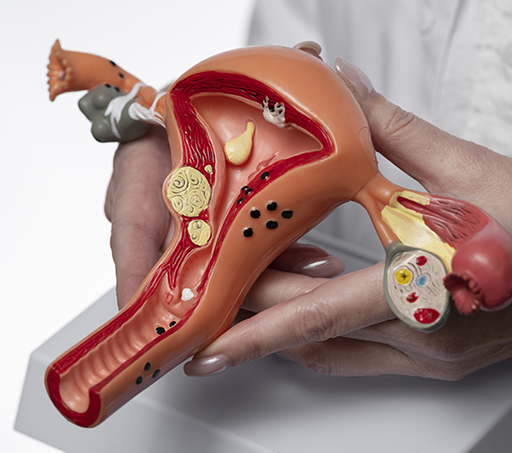CALL US NOW :
9699211867
MAILING ADDRESS :
info@akhandajyotihospital.com
LOCATION ADDRESS :
4th Floor, Roongta Bella Vista, Bhujbal Farm Corner, Mumbai Agra Road, Nashik - 422009
9699211867
info@akhandajyotihospital.com
4th Floor, Roongta Bella Vista, Bhujbal Farm Corner, Mumbai Agra Road, Nashik - 422009
Gynecology is a medical speciality that primarily deals with the health of the female reproductive system. It is a field traditionally associated with female practitioners. However, it is not uncommon to find men working as gynecologists. The presence of male gynecologists can be attributed to several factors:
The field of gynecology, dedicated to the health and well-being of the female reproductive system, has historically been dominated by male practitioners. This phenomenon has raised questions and sparked discussions regarding the presence and role of men in a medical specialty primarily concerned with women’s health.
This article aims to explore the historical context, reasons behind the presence of men in gynecology, and the evolving perspectives on this issue.

Ancient Beginnings: Gynecology has ancient roots, with early references found in the medical practices of ancient civilizations such as Egypt and Greece. In these societies, women’s health issues, including childbirth, were addressed by midwives and healers.
Roman Influence: The Romans played a significant role in the development of gynecological knowledge. Prominent figures like Soranus of Ephesus wrote extensively on obstetrics and gynecology in the 2nd century CE.
Medieval Europe: During the Middle Ages, gynecological knowledge was limited and often intertwined with superstitions. The Church’s influence had a significant impact on women’s health practices.
Renaissance and Enlightenment: The Renaissance period saw some revival of medical knowledge, including gynecology. However, the Enlightenment era brought more systematic and scientific approaches to the field.
19th Century Advances: The 19th century marked significant progress in gynecology, with the development of surgical techniques, such as the introduction of anesthesia during childbirth.
20th Century: Gynecology and obstetrics became distinct medical specialties. Advances in contraception, fertility treatment, and minimally invasive surgery further transformed the field.
Contemporary Gynecology: Today, gynecology encompasses a wide range of medical services, including prenatal care, infertility treatment, and the management of various women’s health conditions.
Gynecology’s historical evolution reflects changing societal attitudes, medical knowledge, and technological advancements in the treatment of women’s health issues.
The history of gynecology is deeply rooted in a patriarchal society, where access to education and professional opportunities was historically limited for women. In the past, female patients often had no choice but to seek medical care from male physicians, as there were few, if any, female gynecologists available.
Historical Gender Disparities in Medical Education:
Gender Stereotypes:
Limited Awareness and Opportunities:
Evolution of Medical Specialization:
Changing Gender Dynamics:

Increasing Female Representation:
Patient Choice:
Diverse Perspectives:
Cultural Sensitivity:
Men become gynecologists for various reasons, including professional interest, a desire to help patients, and the unique challenges and rewards the field offers. Here are some common reasons why men choose to become gynecologists:
Medical Specialization: Gynecology is a specialized field of medicine that focuses on the female reproductive system. Some men are drawn to this specialization due to their interest in women’s health and reproductive issues.
Patient Care: Gynecologists play a crucial role in women’s healthcare, addressing a wide range of medical needs from routine check-ups to complex surgeries. Many male gynecologists are motivated by the opportunity to make a meaningful impact on their patients’ lives.
Interest in Obstetrics: Some men become gynecologists because they are also interested in obstetrics, which involves caring for pregnant women and delivering babies. This dual specialization allows them to provide comprehensive care to women throughout their reproductive journey.
Compassion and Empathy: Like their female counterparts, male gynecologists can be compassionate, empathetic, and dedicated healthcare providers. Patients may feel comfortable discussing sensitive issues with them.
Professional Fulfillment: For some, the field of gynecology is intellectually stimulating and professionally fulfilling. The challenges it presents, such as diagnosing and treating complex conditions, can be rewarding.
Diverse Perspectives: Having both male and female gynecologists in the field can offer diverse perspectives and approaches to patient care, contributing to the overall quality of healthcare.
Expertise and Professionalism: Male gynecologists are trained medical professionals who provide specialized care for women’s reproductive health, ensuring the highest level of expertise in their field.
Compassion and Empathy: Many male gynecologists are known for their compassionate and empathetic approach to patient care, creating a supportive and comfortable environment for their patients.
Diverse Medical Background: Male gynecologists can offer a diverse perspective, as they may have experience in other medical specialties as well, which can be beneficial when addressing complex health issues.
Availability and Convenience: In some regions, male gynecologists may be more readily available or have shorter waiting times for appointments, ensuring timely access to healthcare.
Personal Choice: Some patients may simply feel more comfortable discussing intimate health matters with a male gynecologist, and it’s essential to respect and honor their preferences.
Specializations: Male gynecologists may specialize in areas such as infertility treatment, minimally invasive surgery, or high-risk pregnancies, providing specialized care tailored to individual needs

MBBS, DGO
Obstetrician and Gynaecologist (Mumbai)
Gynae Laparoscopy Surgeon
Infertility Specialist
Akhandajyoti Multispeciality Hospital, Nashik